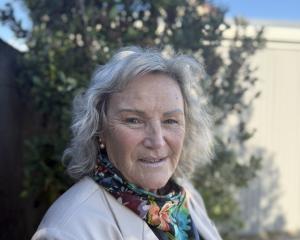
I’m pleased to say it, finally; spring has officially sprung. Not that winter was particularly hard. In some parts of the country it wasn’t so much cold as actually very wild, with states of emergency declared in Marlborough, Nelson and Tasman districts due to heavy rain and flooding in June. But now the blossom is out, the kākā more raucous than ever, and new lambs are cavorting about. It’s a time of growth, fruit budding up, and new life. It’s a time of change, not just in nature, but also in local politics with voting now open in local body elections.

But that isn’t the whole story. Power, and change, don’t just live in Parliament. They live much closer to home. In fact, they live right here, in our Southern community. Local government elections are where things really happen. Water systems are managed, recycling programmes are run, green spaces are protected (or not).
And if I know one thing, it’s this: local people know local issues better than anyone. And here’s what I really want you to know: you do have power here. Nowhere is your voice more impactful than in local elections. When you show up and vote, you’re doing more than ticking a box, you’re shaping the future of our wonderful city and region, and the lives of all of us who live here.
I’m heartened to see so many good people willing to stand to serve our communities. It takes courage to step up, and essential that good people stand tall.
There are great examples around the motu of local government engaging communities in climate initiatives to both reduce emissions and adapt to climate impacts. Right here in Ōtepoti Dunedin, the South Dunedin Future Programme is the result of leadership from both the Dunedin City Council and the Otago Regional Council and it has provided opportunities for community decision making. With a coalition government determined to dig up and burn coal to fuel the climate fire, we need this local leadership to
stand even taller for climate action.
The challenge we all share is a coalition government that is intent on limiting democratic input — remember when the government, under urgency, introduced emergency legislation to prevent regional councils from notifying any new freshwater plans? There are more concerning signs of government centralising decision-making powers through legislation to give the conservation minister sole decision-making powers over the conservation estate. If passed, the minister would gain powers to open the conservation estate for private gain at his discretion.
Meanwhile, this year’s flood events and states of emergency at the top of the South are not "normal". They are a direct consequence of humanity’s dependence on "energy slaves"
— the burning of fossil fuels to power our machines releasing greenhouse gases that trap heat. Our planet is heating up at an alarming rate, and the disruption and destruction is hitting rural and urban communities alike. And now we are suffering a government that seems intent on making this even worse.
The government might legislate national policy and standards, but it is local government that implements policy and standards in a way that suits the needs of the community. If we don’t like what the government is doing we can protest (like the 35,000 people who marched to challenge its plans to drastically scale back Dunedin’s new hospital last year), write submissions, and vote in the general election, but we can also elect local body politicians who will stand up for us and go into bat for us with the government.
And now we’re in spring, the season of renewal and new beginnings. Despite everything, it’s a time of hope and fresh green growth. What I am seeing and hearing both here in our community and as I visit other communities around the motu are the full buds of progressive change. Like good gardeners, we nourish the political ecosystem when we vote, here in our city and region. The power to change things for the better is in our hands.
Scott Willis is an Ōtepoti-based Green Party MP. Each week in this column writers address issues of sustainability.












